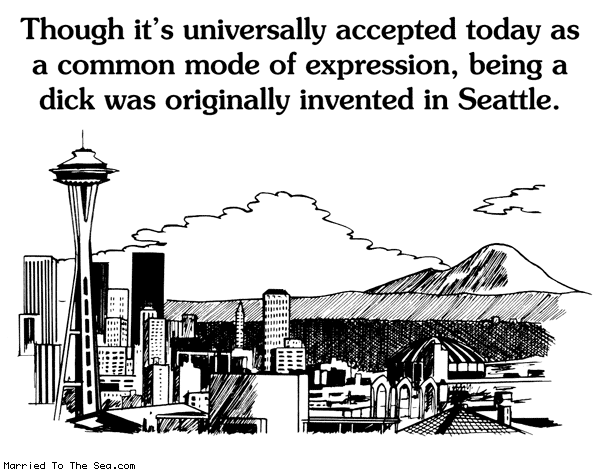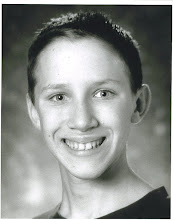Somehow, on an entire 737 full of eager travelers, it appears that only two passengers managed to miss the plane, and the stars somehow aligned so that their empty seats sit to my right and left here in 21B. The cabin is sealed, we take off from the earth, and I slide over to the window seat, disappointed that the low cloud cover prevents me from observing the fractal-road patterns of suburban Minneapolis. My last site of the frozen tundra landscape was of an arterial interstate cloverleaf, shaped with an oddly calming geometry that ensures commuters and thanksgiving travelers headed towards Apple Valley will make their transfer from 694 to 35W with efficiency and expedience.
Does it make me an asshole if I put my back against the airplane window, now feeding the plane with harsh, 35000 elevation North Dakota sunlight, and stretch my awkward, no-longer-adolescent-but-not-quite adult legs out across 21B and C? At what point won’t I get away with this youthful sort of self indulgence anymore? I admittedly feel a bit of guilt knowing how packed in the rest of the passengers are, after watching a larger woman who is also at least 200 years old attempt to fit her purse into the overhead bin and then struggle with the confines of the middle seat.
With any luck, when I surprise my mom and my sister by showing up in Portland this afternoon (no, I didn’t actually end up going to Lincoln, Nebraska), these could be the most expensive smile I’ve ever procured.
I am Seattle bound, before my final destination in Portland. Longtime, astute readers with impeccable memory might think this beleaguered attempted at travel writing and waxing nostalgic about places and hurtling across the country all sounds a little familiar; travelling home for thanksgiving invokes a very sharp, particular set of emotions that are often coupled with surprising clarity. I think thanksgiving inspires me because it is here, under the auspices of blaring, inane Headline News and airport-priced Caribou Coffee that an entire country attempts to rearrange itself, to head the primal, instinctual desire to spend six hundred dollars for a reaffirmation of the definition of home, of family, of belongingness. Logistics, practicality, finances be damned; its thanksgiving, dammit, and those with the means are honestly willing to bear almost any cost for those moments of authenticity, of candlelit turkey-and-cranberry-relish dinner, of help eating the leftovers, of arguing with friends whether Jeremy Masoli is going to take the Ducks to the Rose Bowl. Tin cans full of people are vaulting across the country, soaring over deserts and shopping malls and mountains and parking lots. Minneapolis/St Paul’s airport bristles with activity; the gates are lit up with fluorescents, with dreary televisions neatly lined up to herald the name of a deindustrialized Midwestern metropolitan region at which each flight intends to arrive. I’d like quite a bit to be an astronaut aboard that space shuttle right now, the one NASA keeps tweeting about, looking down on a tumultuous continent full of people that decided today they’d make the journey to someplace, somewhere, someone they call home. You could look down on the Twin Cities, glowing with red interstates lines heading east and west and north and south to Chicago and Fargo and Duluth and Iowa, and even more red lines as planes from around the country hop and skip their way into the airport and out, hub and spokes, a whole country interconnected by the Dwight D Eisenhower Interstate System and cheesy United Airlines Commercials and a solemn yearning to dedicate a day of the year for commitment to family, place, and belonging.
Much like the beginning of the end of senior year of high school, it really does hit me in the most unexpected and unfavorable times just what it means and how serious it is that my time at Macalester is drawing to a close. Last week it was the belated-diwali dinner, where I had been sent on photography assignment, a handful of Southeast Asian students and their friends reaffirming some commitment to multiculturalism or perhaps a connection of a home of their own. The lights of Macalester’s science building’s atrium are dimmed, and behind the silhouettes of girls clothed in dresses the colors of glamorous foreign spices and the lingering caterers who aren’t sure when to leave begins the slideshow. I should admit that even with Macalester’s small size and my perchance for both meeting people and facebook stalking, I’m only acquaintances at best with many of the students in attendance, and I contemplate leaving the dinner while students fumble with the AV chords that never, ever, ever seem to work correctly. Yet the slideshow starts, and the crowd oohs and ahhs with the pictures that commemorate the seniors who are leaving and have helped through the MASECA events in the past. It was as though I have been unable to truly grasp what any of graduating and “real-worlding” and moving on from so many stages of my life actually mean to me, but that the sight of vaguely familiar students sharing a warm moment of acknowledgement at the ritual, coming of age, the beauty of friendship, that make me wonder if I should be having these moments of my own.
“The radio would be turned on, full of love songs and rock music; we believed the rock music but I don’t think we believed in the love songs, either then, or now. Ours was a life lived in paradise and thus it rendered any discussion of transcendental ideas pointless. Politics, we supposed, existed elsewhere in a televised non-paradise; death was something similar to recycling.
Life was charmed but without politics of religion. It was the life of children of the children of the pioneers- Life after God – a life of earthly salvation on the edge of heaven. Perhaps this is the finest thing to which we may aspire, the life of peace, the blurring between dream life and real life – and yet I find myself speaking these words with a sense of doubt.
I think there was a trade-off somewhere along the line. I think the price we paid for our golden life was an inability to fully believe in love; instead we gained an irony that scorched everything it touched. And I wonder if this irony is the price we paid for the loss of God.
But then I must remind myself we are living creatures – we have religious impulses – we must – and yet into what cracks do these impulses flow in a world without religion?”
-Life After God, Douglas Coupland
So far, by far, the best night of the semester has got to be the Zombie Pub Crawl. I guess the Geography Progressive might make a close second.
I’ve over a year removed from some of the darker, rougher times in my life. It’s an odd thing to be nostalgic for – the gritty, cold insomniatic depression best immortalized in my memory as a collection of images of trudging through snow with inundated sneakers, coughing and wheezing in a cold bed, and the sight of a frozen Mississippi River from the window of an airport-bound 84 bus that I would swear away as a parched tundra to be forgotten. The homework was hard, the breakup was harder, the doubt of self was hardest. Maybe nostalgia isn’t the right word for it, but I’m left wondering about the authenticity of emotion, at least after having finished this Coupland book on the flight. This semester has been pretty tough for me as well, in terms of the amount of imported Stumptown Coffee beans needed to keep me awake/functional and in terms of the hours of student government meetings and textbook readings required of this semester. But now, after a whirlwind tour and yet another set of rearrangements, I… well, I’m chugging along quite nicely. But it is odd to miss the severity of those emotions, even if they weren’t positive ones.
To come back to this whole waxing nostalgic for travel thing: I think it’s only here, in Montana, whether on eastbound I90 with a friend like I did this summer or six miles above it heading westbound, participating in the ritual act of being physically between two places and two worlds, it is here that it is possible to truly understand how we are travelling throughout the rest of our lives anyway. It’s only on this precipice between Minnesota and Oregon, a bumpy six hour trek above time zones and Marlboro man cowboys, that it becomes so abundantly clear how much of the rest of my life right now is defined by intellectual, and emotional movement. It’s here, waiting for the Rocky Mountains to spring up from the unassuming Tattooine foothills, that retrospection encourages an honest assessment of how little is constant and how applying for a job in New York isn’t just A New Thing in life but potentially The Next Thing in life. It’s over my plastic glass of ginger ale, with airplane ice cubes that routinely don’t pass health inspections for water quality, that my ruminations on navigating through space on a bicycle on an Alley Cat race aren’t all that different from my ruminations on navigating through my own desires, plans, and concerns for life. It’s all about constantly dodging obstacles, whether its roadkill in the Fairview Avenue bike lane or young children darting in front of you on the airport’s peoplemover or the eminent threat of leaving Macalester or escaping loneliness.
All of this for a little bit of my mom’s Watergate salad.
Okay, enough of this. I have three full seats on this aisle to take advantage of, and I’m still pretty tired from those almost-all-nighters for the Ecology Lab and Econ paper earlier this week. Updates of my time in thanksgiving to follow, maybe.





